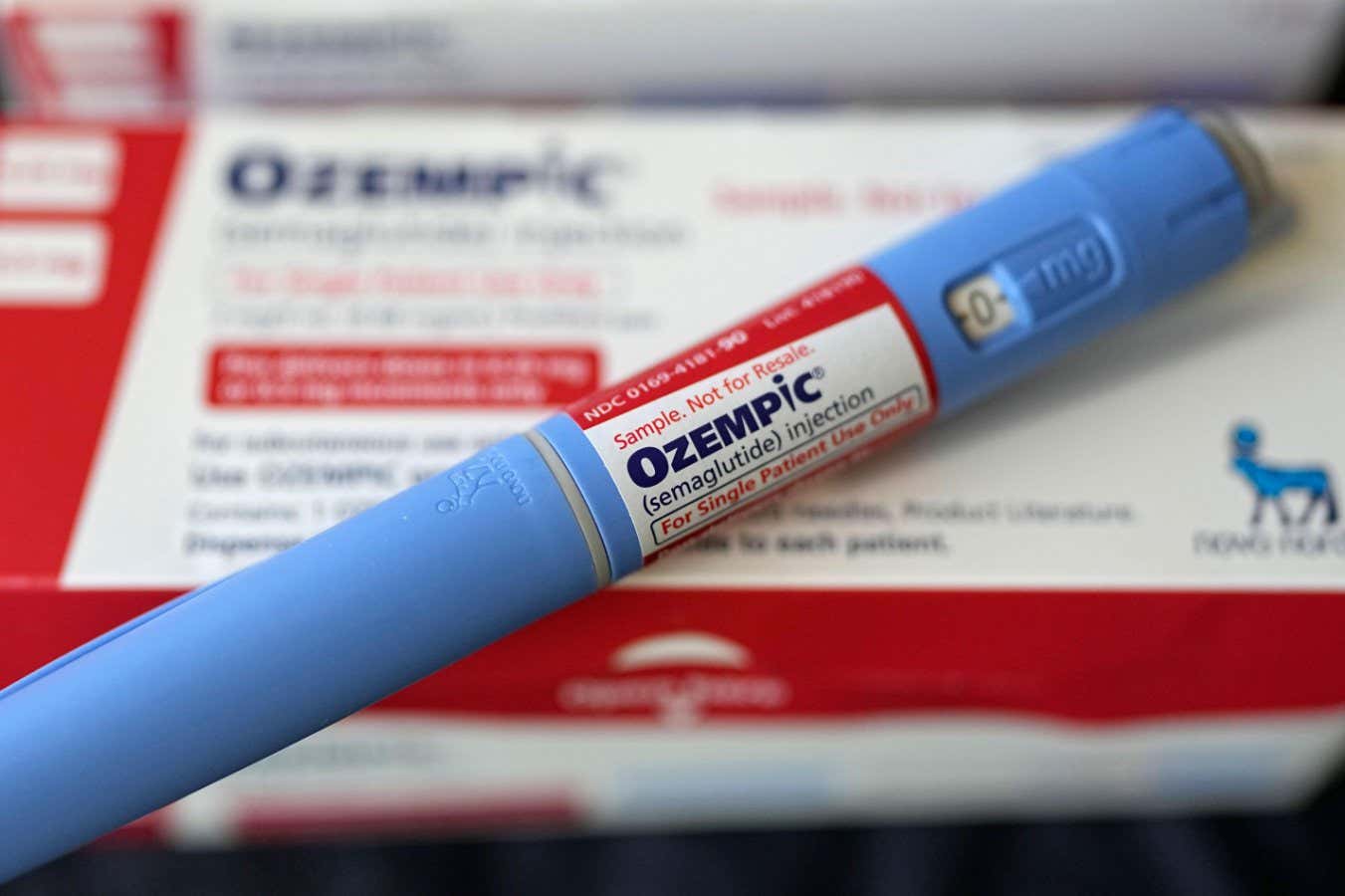People with disrupted access to GLP-1 drugs, like Ozempic, still seem to lose substantial amounts of weight
By Carissa Wong
14 July 2025
Ozempic and other GLP-1 drugs may not need to be taken as frequently as they’re prescribed
Associated Press / Alamy
People who take GLP-1 drugs like Ozempic can lose weight even if they face disruptions in accessing the medications, which may reassure users when the therapies are in short supply.
Drugs like semaglutide, also known by the brand names Ozempic and Wegovy, have transformed how we treat obesity, but soaring demand has led to frequent supply shortages. In the US, disruptions can also occur if health insurance companies change which drugs they will cover. For instance, CVS Caremark, which helps insurers manage prescription plans, recently stopped covering Eli Lilly’s Zepbound, which is based on the GLP-1 drug tirzepatide.
Read more
Why do Ozempic and Wegovy seem to treat everything?
To explore the effects of such disruptions, Kaelen Medeiros and her colleagues at the New York-based company Calibrate – which provides medications and digital support to help people lose weight – analysed data from more than 6000 people in the US who paid to enrol in the firm’s programme for one year between 2021 and 2024. Nearly 90 per cent of the participants had obesity, while the rest were overweight with a weight-related condition like type 2 diabetes, high cholesterol or heart disease.
The programme gave them access to an app that offered lessons, every two weeks, on how to optimise lifestyle habits such as diet and exercise. Plus, every couple of weeks they received a one-to-one chat with a health coach who helped them implement these lessons. For an additional fee, all of the participants were given GLP-1 drugs, such as Ozempic, mostly on a weekly basis.
By the end of the programme, 73 per cent of the participants had experienced one or more disruptions in their GLP-1 access, defined as at least 13 weeks without the drugs. These participants received an average of eight months of GLP-1 supplies over the one-year trial. The individuals still lost 14 per cent of their weight, on average, compared with 17 per cent weight loss among those without such disruptions. The results were presented at the annual meeting of the Endocrine Society in San Francisco, California, on 14 July.
